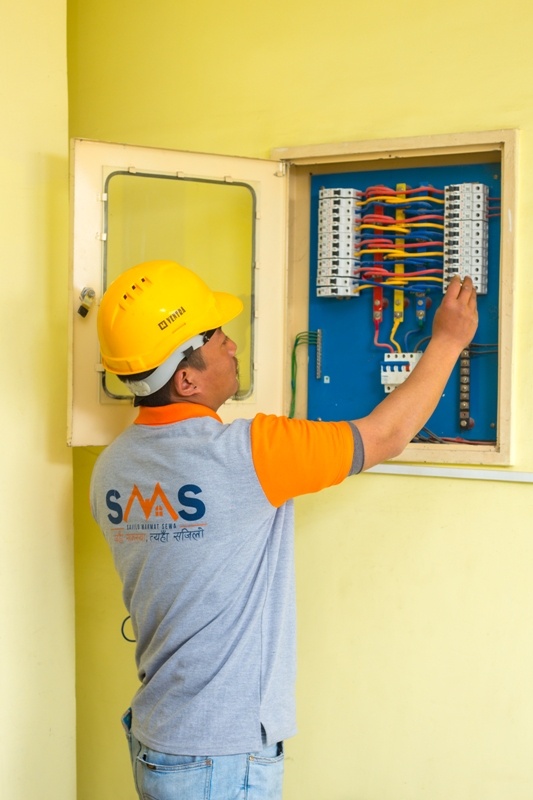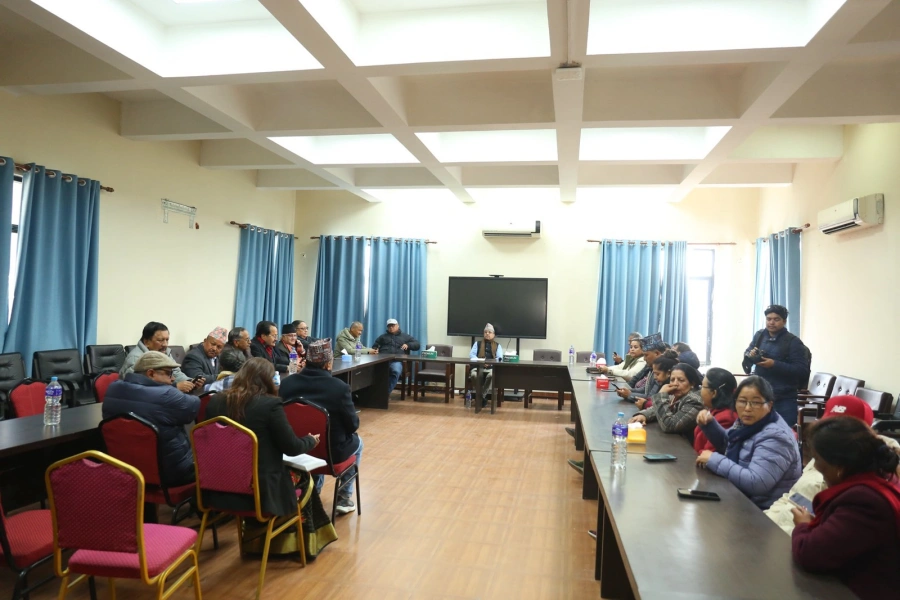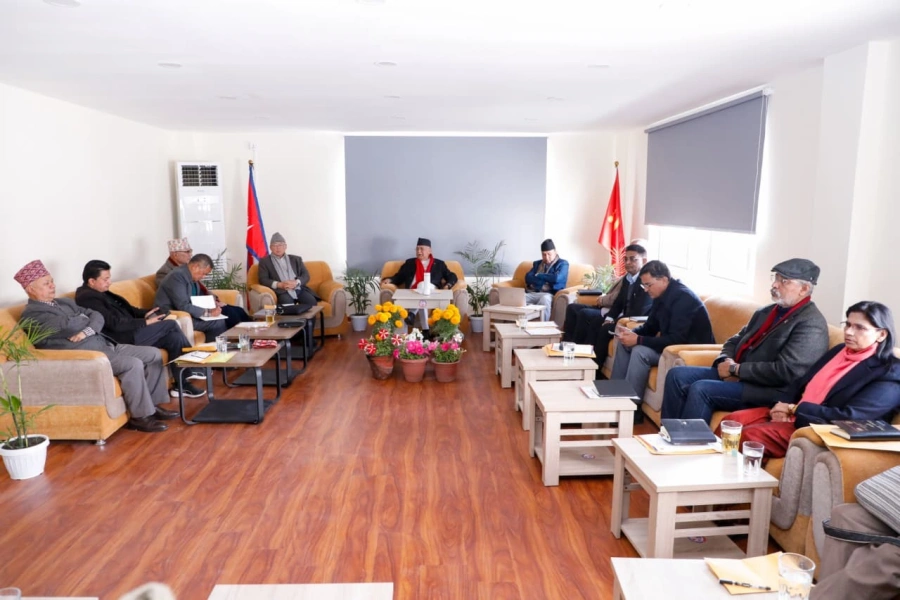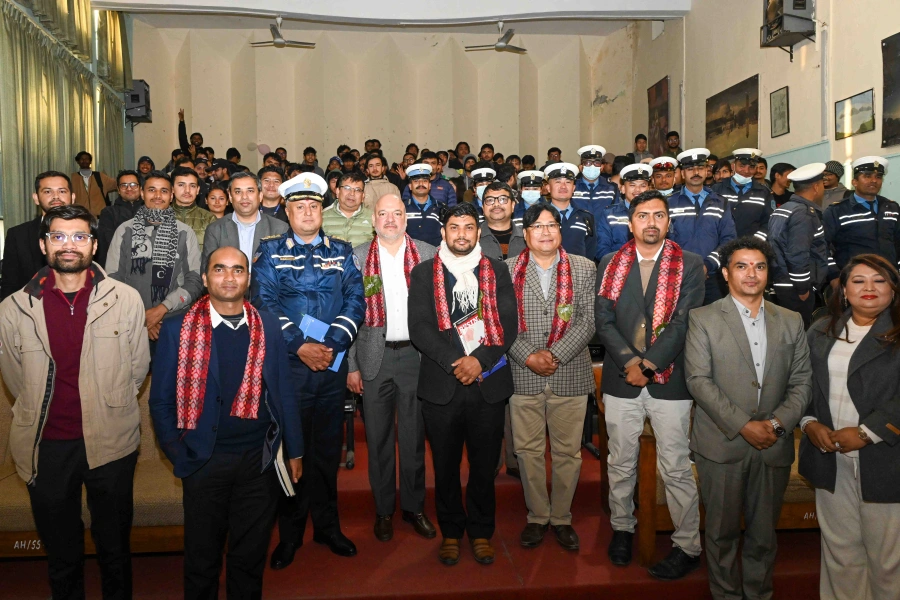It’s difficult to find good workers to fix your house’s electricity and washroom these days. Be it plumbing or interior repairs, some of the chores remain untouched for days because of not knowing good workers. Once you find one, other issues arise regarding the money value and work timings.
To beat that problem, thankfully, there are service providers like Sajilo Marmat Sewa (SMS). The brand acts as a bridge between service seekers and service providers. Founded by Kawish Bhakta Shrestha, Sujeet Regmi and Pukar Acharya in June of 2017, SMS is constantly trying to improve the quality of people’s lives through technology-enabled solutions. They provide high-quality maintenance services with a sense of warmth, friendliness and company spirit. Currently, SMS provides plumbing, carpentry, computer, home appliances, and computer repairing services.
So, how does SMS work?
SMS works on the basis of people’s orders. One can place an order over the phone or directly connect with them through their website (www.sajilosewa.com). They also take orders over Facebook, Twitter, Instagram, and LinkedIn.

Sajilo Marmat Sewa: One Stop Maintenance Solution

The charges are finalized by the technicians after the visit. However, the minimum charge is priced at 100 rupees. The brand also has a monthly subscription, where they charge the price starts from Rs 1450.
Story behind initiation
Sajilo Marmat Sewa started during an entrepreneurship course during an MBA degree at Kathmandu University School of Management (KUSOM). Co-founder Regmi found out that customers were facing severe problems trying to acquire swift maintenance services in the capital. The idea emerged, awarding the brand an ‘Intra-University Business Idea’. As a reward, the idea was incubated at Idea Studio, a nationwide Entrepreneurship Development Program. So, three enthusiastic KU graduates decided to solve the maintenance problem and start their entrepreneurial journey.

Since the brand’s inception, SMS is working to solve underemployment, exploitation of technical workforce inside and outside the country, and brain drain in Nepal.
According to Shrestha, the brand also wants to pin the degree and knowledge of technicians. “Technicians in Kathmandu have graduated from technical schools and are well-trained. But, they are wildly exploited by their contractors. Another problem is that although the blue-collar workers are widely demanded in Nepal, they still migrate to nations like Qatar, Saudi Arabia, and Korea away from their families and children despite their will just to earn a living for themselves. If not for the exploitation, these workers can earn a similar living, or more, in Nepal itself,” he added.
Challenges and overcoming them
Today’s clock is facing underemployment, exploitation of technical workforce and brain drain in the rapid rate. The co-founders point them as the major hurdles for businesses. Thankfully, Shrestha told they have been working relentlessly to solve those problems.
“Getting skilled manpower and earning people’s trust were the major challenges initially”, Shrestha laments. “However, today we get calls from technicians outside Kathmandu and even from abroad to work for SajiloMarmatSewa. The maintenance market is much unregulated, so is the pricing. Our challenge is to find the right price that will satisfy the customers and the technicians as well.”

Currently, they have overcome all those hurdles, which arose during the early days. However, the founder still laments an obstacle of scaling in SMS.
So how do they overcome? The answer to the question is to quote a popular line by Norman Vincent Peale: “Every problem holds the seeds of its own solution. If you don't have any problems, you don't get any seeds.” Yes, the burdens are painstaking but they take it as a source of inspiration and learning. “The problem itself is a great inspiration. We felt privileged by belonging to middle-class families in Nepal, having received the best possible education and holding respected jobs, we felt it is our responsibility to do something more,” Shrestha adds.
Goals
Despite being in the business since 2017, the founder wishes SMS to be a service market place, acquiring skilled manpower.





































